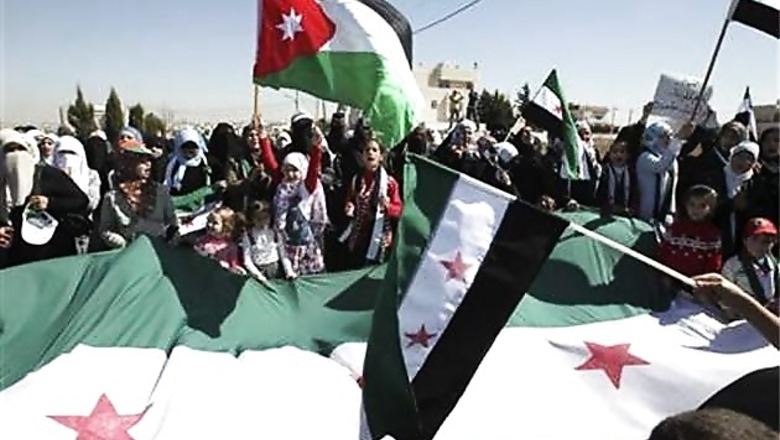
views
Geneva: The United Nations hopes to get permission from the Syrian government in the coming days to send more aid workers to help at least 1 million people in need of urgent assistance, a top UN humanitarian official said on Friday.
Syria has recognised there are "serious humanitarian needs" and that action is required, but logistical issues and visas for aid workers are still being discussed, said John Ging, director of operations of the UN Office for the Coordination of Humanitarian Affairs (OCHA).
"Now it's a question of implementing those plans. This is where we are needing to mobilise more effective engagement with the Syrians to get that plan fully up and running," Ging said.
"The next step in the process which we want to see concluded in a matter of days ... is to get agreement on the operationalisation of the plan and concurrent with that the mobilisation of the resources to make it happen," he said.
It was important to get Syrian agreement on the plan and to mobilise partner aid agencies for what Ging said would be a "major humanitarian operation".
He was speaking to reporters after the Syrian Humanitarian Forum was held in Geneva to discuss a $180 million assistance plan for six months aimed at helping an estimated 1 million within Syria.
An advance team of UN monitors is due to deploy in Syria in the coming week to monitor a fragile ceasefire that has so far failed to stop the bloodshed.
The aid plan, drawn up after a joint assessment mission conducted with Syrian officials last month, aims to provide food and medical assistance, as well as kitchen sets for displaced families who have lost their homes and cash payments for those sheltering them, according to Ging.
Separately, the UN refugee agency has appealed for $84 million for more than 60,000 Syrian refugees who have fled to Jordan, Lebanon, Turkey and Iraq. But it has only received 19 percent of the funds, UNHCR spokeswoman Melissa Fleming told a briefing.
The United States announced it was donating a further $8 million for people in Syria, mainly for food and emergency health care, taking its contribution to $33 million. Canada, China and Sweden pledged funds at the talks, UN sources said.
The UN World Food Programme (WFP) aimed to double the number of people it was assisting in Syria this month to 200,000 from 100,000 in March, Ging said.
Syria says "no crisis"
Syria's ambassador to the United Nations in Geneva, Faysal Khabbaz Hamoui, attended the closed-door talks along with representatives of donor countries, the Organisation of Islamic Cooperation, the Arab League and European Union's humanitarian office (ECHO).
Speaking separately to reporters, Hamoui said it had been a constructive meeting but accused some delegations of trying to politicise humanitarian aid.
"We are ready to cooperate but we hope they come to enter the house from the front door, not the window," he said. "We don't have any crisis in Syria, it is not Somalia."
Ging, asked about guarantees on access by Syrian authorities, said: "That's the central issue to what we are negotiating - access, capacity of humanitarian agencies and organisations on the ground.
"We have to have agreement to ramp up that capacity, we have to have agreement on the practicalities, the whole logistical practicalities and visa issues for staff. There's a range of very practical issues that we are focused on in our negotiations with the government of Syria which will then enable us to do what is needed on a larger scale."
UN agencies have been largely shut out of Syria, where the International Committee of the Red Cross (ICRC) is the only international body to deploy aid workers. UN agencies have made some relief supplies available for distribution by the Syrian Arab Red Crescent.
The ICRC, in a statement issued on Friday, said that unrest in Syria continued to cause suffering and mass displacement.
"There is a continuous flow of people leaving their homes in search of a safe haven," said Alexandre Equey, the ICRC's deputy head of delegation in Syria. "While some have managed to move in with relatives, friends, or even strangers willing to lend a helping hand, others have had no choice but to take refuge in schools, mosques and churches."
The ICRC and Syrian Arab Red Crescent have delivered food parcels for 60,000 people in several provinces in recent weeks as well as hygiene items, towels, blankets and mattresses.
Both agencies have had good access for the past four weeks to cities including Homs, ICRC spokesman Hicham Hassan said.















Comments
0 comment